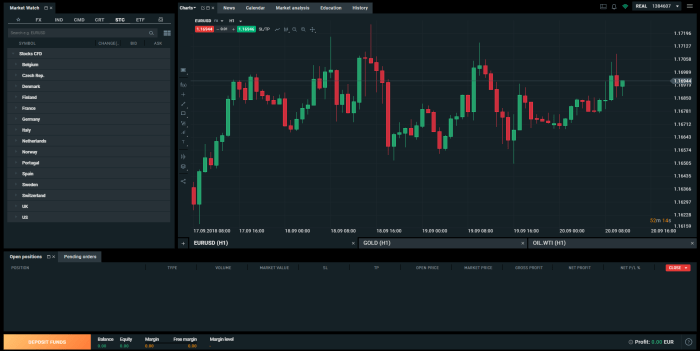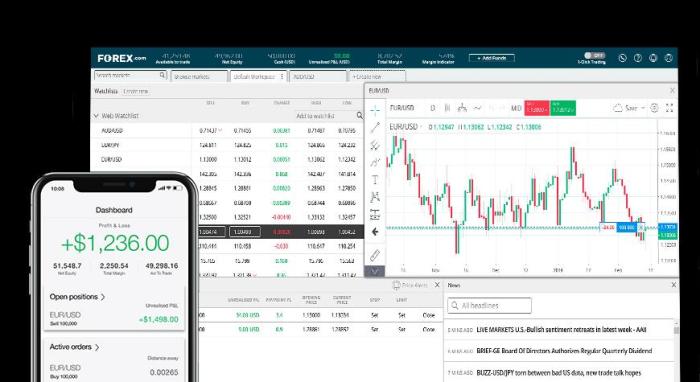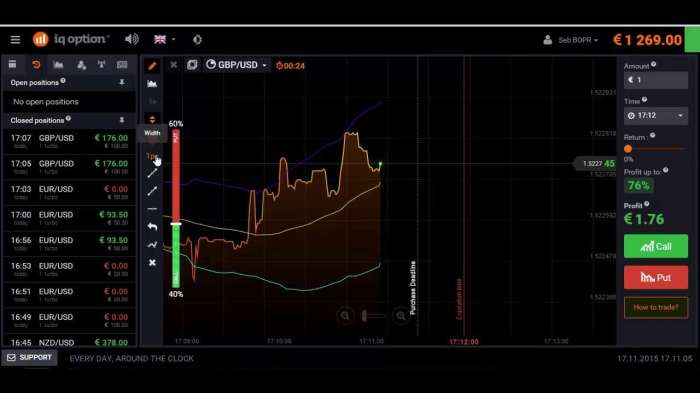
Taxes on forex trading—it’s a topic that can feel like navigating a maze blindfolded. One minute you’re riding the wave of profits, the next you’re wrestling with tax implications across different countries, from the US to the UK, Australia, and beyond. Understanding the nuances of capital gains tax, allowable deductions, and reporting requirements is crucial for every forex trader, whether you’re a seasoned pro or just starting out. This guide cuts through the jargon, offering a clearer path to navigating the often-complex world of forex taxation.
We’ll delve into the specifics of how different countries tax forex profits, breaking down the tax implications for both individual traders and institutional investors. We’ll explore the impact of leverage and margin, the tax treatment of trading software and educational resources, and even touch on the sensitive subject of tax havens. Get ready to demystify the tax side of forex trading, so you can focus on what truly matters: maximizing your gains.
Taxation of Forex Trading Profits Globally

Navigating the world of forex trading involves more than just charting patterns and predicting market movements; it also requires a firm understanding of the tax implications. The rules surrounding the taxation of forex trading profits vary significantly across countries, making it crucial for traders to understand the specific regulations in their jurisdiction and any relevant international tax treaties. This can be a complex area, so let’s break down some key aspects.
Tax Treatment of Forex Trading Profits in Different Countries
The tax treatment of forex trading profits differs considerably depending on your location. Some countries treat forex trading as a business, while others classify it as capital gains or investment income. This impacts the applicable tax rates, reporting requirements, and allowable deductions. The following table provides a simplified overview; it’s crucial to consult with a tax professional for personalized advice as tax laws are subject to change and individual circumstances can greatly influence your tax liability.
| Country | Tax Rate | Reporting Requirements | Tax Deductions |
|---|---|---|---|
| USA | Varies depending on income bracket and whether treated as business or investment; generally, profits are taxed as ordinary income if considered a business, or as capital gains if considered an investment. | Annual tax return (Form 1040), including Schedule C (if business) or Schedule D (if investment). Detailed records of trades are required. | Business expenses (if treated as a business), including software subscriptions, educational courses, and office supplies. Capital losses can offset capital gains. |
| UK | Income tax rates apply to profits, varying based on income bracket. | Self-Assessment tax return. Comprehensive records of trades are essential. | Allowable expenses related to generating the profits, such as software and trading platform fees. |
| Canada | Taxed as business income if forex trading is considered a business, or as capital gains if considered an investment. Rates vary depending on income bracket. | Annual tax return (T1). Detailed records are necessary. | Business expenses (if a business) or capital losses (if investment). |
| Australia | Taxed as ordinary income if considered a business; capital gains tax applies if considered an investment. Rates vary depending on income bracket and holding period. | Annual tax return. Thorough record-keeping is mandatory. | Business expenses (if a business) or allowable capital losses (if investment). |
Determining Tax Residency for Forex Trading
Tax residency is crucial in determining which country’s tax laws apply to your forex trading profits. Residency is usually determined by factors such as the number of days spent in a country, the location of your permanent home, and your center of vital interests (family, business, etc.). Each country has its own specific criteria, and it’s possible to be considered a tax resident in multiple countries simultaneously, potentially leading to double taxation. Tax treaties between countries often help mitigate this issue.
Tax Implications for Individual Traders vs. Institutional Investors
Individual traders and institutional investors face different tax implications. Individual traders typically report their forex trading profits on their personal income tax returns, subject to the applicable rates and deductions within their country of residence. Institutional investors, on the other hand, often have more complex structures and may benefit from specific tax treatments depending on their legal entity and investment strategies. For example, hedge funds may have different tax obligations compared to mutual funds. Moreover, institutional investors frequently have access to sophisticated tax planning strategies that may not be available to individual traders.
Capital Gains Tax and Forex Trading
Navigating the world of forex trading involves more than just understanding currency fluctuations; it also requires a solid grasp of the tax implications. Profiting from forex trades often means facing capital gains tax, a levy on the profit made from selling an asset for more than its purchase price. This section will delve into how capital gains tax applies specifically to your forex trading activities, considering both short-term and long-term holdings and different trading strategies.
Capital Gains Tax Calculation for Forex Trading
Calculating capital gains tax on forex transactions involves several steps. First, you need to determine your net profit for each trade. This is calculated by subtracting your purchase price (including commissions and fees) from your selling price (again, factoring in commissions and fees). The total net profit from all your forex trades within a tax year forms the basis for your capital gains tax calculation. The tax rate applied will depend on your country of residence and the applicable tax laws, and often varies based on the length of time you held the position. Remember to keep meticulous records of all your transactions, including dates, amounts, and fees, to accurately calculate your capital gains.
A simplified flowchart illustrating the process is as follows:
Flowchart: Calculating Capital Gains Tax on Forex Transactions
Understand how the union of forex trading tools can improve efficiency and productivity.
Start –> Calculate Net Profit per Trade (Selling Price – Purchase Price – Fees) –> Sum Net Profits from All Trades within Tax Year –> Determine Applicable Tax Rate (Based on Holding Period and Tax Laws) –> Calculate Capital Gains Tax (Net Profit x Tax Rate) –> Report and Pay Tax –> End
Obtain access to forex trading fidelity to private resources that are additional.
Tax Implications of Short-Term vs. Long-Term Forex Positions
The length of time you hold a forex position significantly impacts your capital gains tax liability. In many jurisdictions, short-term capital gains (typically defined as assets held for less than one year) are taxed at a higher rate than long-term capital gains (assets held for one year or longer). For example, let’s assume a trader in the US makes $10,000 in profit from a short-term forex trade and $10,000 in profit from a long-term trade. Their short-term gains might be taxed at their ordinary income tax rate, while their long-term gains could be taxed at a lower capital gains rate. This difference can substantially affect your overall tax burden. Always consult your local tax regulations for specific definitions and rates.
Tax Implications of Different Forex Trading Strategies
Different forex trading strategies have varying tax implications. Day trading, characterized by opening and closing positions within the same day, typically results in all profits being considered short-term capital gains, potentially leading to a higher tax liability. Conversely, swing trading, which involves holding positions for several days or weeks, might allow for some profits to qualify as long-term capital gains, depending on the holding period and local tax laws. For instance, a day trader might face a higher tax rate on their total profit compared to a swing trader who holds positions for longer periods, resulting in a portion of their profits being taxed at a lower long-term rate. Scalping, a strategy involving extremely short-term trades, would also typically fall under short-term capital gains taxation. The choice of strategy therefore directly influences the tax outcome.
Tax Deductions for Forex Traders
Navigating the world of forex trading involves more than just analyzing charts and predicting market movements; it also requires a keen understanding of the tax implications. While forex trading profits are generally taxable, the good news is that several expenses related to your trading activities might be deductible, potentially reducing your overall tax burden. Let’s explore these deductions and the crucial documentation needed to claim them.
Knowing which expenses are deductible can significantly impact your bottom line. Properly claiming these deductions requires meticulous record-keeping and a clear understanding of tax regulations in your jurisdiction. The specific rules can vary depending on your country of residence, so consulting with a tax professional is always recommended.
Allowable Tax Deductions for Forex Trading
A range of expenses directly related to your forex trading activities may be deductible. These deductions can significantly offset your taxable income, making it essential to keep accurate records. Failure to track and document these expenses could mean missing out on legitimate tax savings.
- Trading Software and Platform Fees: Subscription fees for charting software, trading platforms (like MetaTrader 4 or 5), and other specialized forex trading tools are generally deductible.
- Education and Training Expenses: Costs associated with courses, seminars, workshops, or online resources designed to improve your forex trading skills can often be claimed as a deduction. This could include books, webinars, and mentorship programs.
- Office Expenses (if applicable): If you dedicate a specific area of your home exclusively to forex trading, a portion of your home-related expenses (rent, utilities, mortgage interest, etc.) might be deductible. This requires careful calculation and adherence to specific tax rules regarding home office deductions.
- Computer and Internet Expenses: A portion of your computer hardware and internet costs directly attributable to your forex trading activities may be deductible. This is usually a pro-rata calculation based on the percentage of time the equipment is used for trading.
- Professional Fees: Fees paid to financial advisors, tax consultants, or other professionals specifically for advice related to your forex trading activities can be claimed as deductions.
- Accountancy Fees: Fees paid to accountants for preparing your tax return, specifically relating to your forex trading income and expenses, are generally deductible.
Documentation Requirements for Claiming Deductions
Maintaining meticulous records is paramount when claiming tax deductions for forex trading. The tax authorities require substantial evidence to support your claims. Failure to provide adequate documentation can lead to the rejection of your deductions.
- Detailed Transaction Records: Keep a comprehensive record of all your forex trades, including dates, currency pairs traded, buy/sell prices, transaction fees, and profit/loss for each trade. This usually involves maintaining a trading journal or utilizing software that generates these reports.
- Receipts and Invoices: Retain all receipts and invoices for expenses such as software subscriptions, educational courses, and professional fees. These documents should clearly show the date, amount, and description of the expense.
- Bank Statements: Your bank statements can provide supporting evidence for transactions and payments related to your forex trading activities.
- Home Office Documentation (if applicable): If claiming home office deductions, you’ll need to provide detailed documentation to demonstrate the exclusive use of a specific area of your home for forex trading, including measurements and photographs if necessary.
Comparison of Forex Trading Expenses with Other Investment Activities
The deductibility of forex trading expenses is generally similar to that of other investment activities, although there are some nuances. For instance, while brokerage fees for stock trading are usually deductible, the specific rules surrounding deductions for forex trading software and education might differ slightly depending on your jurisdiction. Similarly, the home office deduction rules apply to other home-based businesses, but the specific requirements and limitations for forex trading might vary. Always consult your local tax regulations for precise guidance. The key difference lies in the nature of the expenses. While traditional investments might involve primarily brokerage fees, forex trading often entails additional costs like software subscriptions and specialized training.
Tax Reporting and Compliance for Forex Traders
Navigating the world of forex trading involves more than just technical analysis and market predictions; understanding your tax obligations is crucial for long-term success. Proper tax reporting isn’t just about avoiding penalties; it’s about ensuring financial transparency and maintaining a healthy relationship with your tax authorities. This section will guide you through the process of reporting your forex trading income and expenses, completing relevant tax forms, and understanding the potential consequences of non-compliance.
The process of reporting forex trading income and expenses varies depending on your country of residence. However, the core principles remain consistent: accurately track all transactions, categorize them correctly, and report them to the relevant tax authorities within the stipulated deadlines. This involves meticulous record-keeping, which forms the bedrock of successful tax compliance. Failure to maintain detailed records can lead to significant complications during tax season.
Reporting Forex Trading Income and Expenses, Taxes on forex trading
Accurate record-keeping is paramount. You need to maintain detailed records of all your forex transactions, including the date, currency pair traded, the amount of currency bought or sold, the exchange rate at the time of the transaction, and any associated fees or commissions. This information is typically found in your brokerage statements. These statements should be downloaded regularly and stored securely, ideally both digitally and physically. You’ll need to distinguish between capital gains (profits from selling currency at a higher price than you bought it) and ordinary income (any income generated from forex trading activities outside of capital gains, such as commissions or bonuses). This distinction is vital for calculating your taxable income correctly. For example, a trader might earn commissions from referring other traders to their brokerage. These commissions are taxed differently than the capital gains from currency trades.
Completing Relevant Tax Forms
The specific tax forms you’ll need to complete will depend on your location and the complexity of your forex trading activities. In many jurisdictions, you will need to report your capital gains and losses on a schedule specifically designed for this purpose. This schedule typically requires detailed information on each transaction, including the purchase and sale dates, cost basis, proceeds, and the resulting gain or loss. You may also need to include information on any fees or commissions paid. Consult with a tax professional or refer to your tax authority’s website for guidance on completing the relevant forms accurately. Failing to accurately complete these forms can lead to delays in processing your return, requests for additional information, and potentially penalties. It’s crucial to understand the specific requirements for reporting forex trading in your jurisdiction.
Penalties for Non-Compliance
Non-compliance with forex trading tax regulations can result in serious consequences. The penalties can be substantial, both financially and legally. It’s essential to understand these potential repercussions to encourage adherence to the regulations.
Potential penalties for non-compliance with forex trading tax regulations can include:
- Late filing penalties: These are typically calculated as a percentage of the unpaid tax and increase the longer the delay.
- Accuracy-related penalties: These penalties are imposed for underreporting income or overstating deductions, and can be quite significant.
- Interest charges: Interest will accrue on any unpaid taxes, adding to the overall financial burden.
- Criminal prosecution: In cases of intentional tax evasion, individuals may face criminal charges, including fines and imprisonment.
- Reputational damage: Non-compliance can severely damage your reputation and make it difficult to obtain future loans or financial services.
The Impact of Leverage and Margin on Forex Tax Liability
Leverage and margin are integral parts of forex trading, significantly impacting both potential profits and losses. Understanding how these mechanisms affect your tax liability is crucial for accurate reporting and avoiding potential penalties. The use of leverage magnifies both gains and losses, directly influencing the taxable amount, while margin requirements introduce additional complexities.
Leverage and margin fundamentally alter the tax calculation because they affect the size of your trading positions relative to your initial investment. Essentially, you’re trading with borrowed money, amplifying your exposure. This means larger profits (and larger losses) will directly impact your overall tax liability. The tax authorities will consider the total profit or loss resulting from your leveraged trades, not just the initial investment. This can lead to significantly higher tax bills during profitable periods but can also offer tax advantages in years with net losses, depending on your jurisdiction’s tax laws.
Tax Treatment of Margin Calls and Losses Incurred Due to Margin Calls
Margin calls occur when your account equity falls below the broker’s required maintenance margin. This forces you to deposit more funds to maintain your open positions. Losses incurred due to margin calls are generally considered capital losses for tax purposes. However, the specific tax treatment varies across different jurisdictions. Some countries may allow you to deduct these losses against capital gains from other investments, while others might have limitations on the amount of losses that can be deducted in a single tax year. It’s crucial to consult with a tax professional or refer to your country’s specific tax regulations to determine the correct treatment of margin call losses in your situation. Careful record-keeping is vital in this scenario, meticulously documenting all margin calls, losses incurred, and subsequent deposits.
Hypothetical Scenario Illustrating Leverage’s Impact on Tax Liability
Let’s imagine a trader, Alex, with a $10,000 account. Alex uses 1:100 leverage to trade EUR/USD. This means Alex can control a $1,000,000 position with just $10,000. If Alex correctly predicts a price movement and makes a $10,000 profit on their $1,000,000 position, this translates to a 1% return on the controlled position. However, Alex’s tax liability isn’t calculated on the $10,000 initial investment but rather on the actual profit generated – $10,000. This substantial profit, amplified by leverage, will result in a higher tax liability compared to a scenario where Alex traded without leverage. Conversely, if the trade had gone against Alex, resulting in a $10,000 loss on the $1,000,000 position, the tax treatment would depend on the specific tax laws of their jurisdiction. They might be able to deduct this loss against other capital gains, but the magnitude of the loss is still significant due to the leverage used. This hypothetical scenario highlights how leverage magnifies both profits and losses, thereby significantly impacting the final tax calculation. It underscores the need for careful risk management and a thorough understanding of the tax implications of leveraged trading.
Tax Implications of Forex Trading Software and Tools: Taxes On Forex Trading
Navigating the tax landscape of forex trading can be tricky, especially when factoring in the various software, tools, and resources used to facilitate your trading activities. Understanding the tax implications of these expenses is crucial for accurate reporting and minimizing your tax liability. This section clarifies the deductibility of these costs and how to properly categorize them for tax purposes.
The use of forex trading software, charting tools, and educational resources are often considered business expenses, provided they directly relate to generating forex trading income. This means that casual use or purely recreational exploration of these tools wouldn’t qualify for deductions. The key is demonstrating a direct link between the expense and your profit-generating activities. However, the specific rules and regulations governing deductibility vary across different tax jurisdictions, so it’s essential to consult with a tax professional familiar with forex trading taxation in your specific location.
Deductibility of Forex Trading Software and Tools
Expenses incurred for forex trading software, charting platforms (like TradingView or MetaTrader), and other analytical tools are generally considered deductible business expenses if they are used directly in generating income from forex trading. This includes costs associated with subscriptions, upgrades, and maintenance. For example, the annual subscription fee for a professional charting platform used for technical analysis directly impacting trading decisions would be a deductible expense. Similarly, the one-time purchase price of specialized forex trading software could be depreciated over its useful life. However, personal use of such software would negate the deductibility. Thorough record-keeping is vital to substantiate these deductions. Keep receipts, invoices, and detailed logs of usage.
Tax Treatment of Forex Trading Signals and Educational Materials
Subscriptions to forex trading signals services and educational materials (online courses, webinars, books) also fall under the category of deductible business expenses if they directly contribute to improving trading skills and generating profits. The cost of a comprehensive online forex trading course aimed at enhancing trading strategies would be deductible. Similarly, subscriptions to reputable signal providers, used to inform trading decisions, are typically considered deductible. Again, it is critical to establish a direct link between the expense and the generation of trading income. A personal interest in forex trading unrelated to profit generation does not qualify these expenses for deduction.
Categorizing Expenses for Tax Reporting
Proper categorization of these expenses is vital for accurate tax reporting. These expenses should be categorized under the general heading of “business expenses” or a similar designation, depending on your specific tax jurisdiction’s requirements. You might further sub-categorize them into specific categories such as “software subscriptions,” “educational materials,” or “professional services” for better organization and clarity. Detailed records, including invoices and payment confirmations, should be meticulously maintained to support these deductions. This will assist both you and the tax authorities in accurately verifying the legitimacy and relevance of these expenses. Remember to consult with a tax advisor to ensure compliance with all applicable tax laws and regulations.
Tax Havens and Forex Trading
The allure of tax havens for forex traders is undeniable: lower tax burdens and potentially increased profits. However, navigating this complex landscape requires a thorough understanding of the legal, ethical, and practical implications. While seemingly offering significant financial advantages, utilizing offshore accounts and entities for forex trading involves substantial risks that can outweigh the perceived benefits.
The use of offshore accounts or entities for forex trading is a strategy aimed at minimizing tax liabilities. Traders might establish accounts in jurisdictions with favorable tax laws, such as those offering no capital gains tax or extremely low corporate tax rates. This can significantly reduce the amount of tax owed on profits generated from forex trading activities. However, this strategy is not without significant legal and ethical challenges.
Legal and Ethical Considerations of Using Tax Havens
Employing tax havens for forex trading raises several crucial legal and ethical concerns. Many countries have strict regulations against tax evasion and money laundering, and using offshore accounts to deliberately avoid paying taxes in one’s country of residence can lead to severe penalties, including hefty fines and even imprisonment. Furthermore, the ethical implications are significant. Utilizing tax havens often shifts the tax burden onto other taxpayers, potentially impacting public services and infrastructure. Transparency and accountability are essential aspects of ethical financial conduct, and using tax havens often undermines these principles. The lack of transparency in some tax haven jurisdictions can also make it difficult to trace the origin of funds, increasing the risk of involvement in illicit activities. Therefore, a thorough understanding of both the local tax laws in the trader’s residence and the laws of the jurisdiction where the offshore account is held is critical.
Tax Benefits and Risks Associated with Different Tax Haven Jurisdictions
Different tax haven jurisdictions offer varying degrees of tax benefits and risks. Some jurisdictions might offer complete tax exemption on forex trading profits, while others might impose minimal taxes. However, the level of regulatory oversight and transparency varies considerably. Jurisdictions with lax regulations might attract traders seeking to minimize their tax burden but also carry a higher risk of regulatory scrutiny and potential legal repercussions. For example, a jurisdiction known for its low tax rates but weak anti-money laundering laws could present a higher risk of penalties if the trader is found to be involved in any illicit activities. Conversely, a jurisdiction with stricter regulations and greater transparency might offer a lower risk but potentially fewer tax benefits. Careful consideration must be given to the specific tax laws, regulatory environment, and associated risks of each potential jurisdiction before establishing an offshore account for forex trading. Professional tax advice is strongly recommended to navigate this complex area.
Epilogue
Successfully navigating the world of forex trading requires more than just sharp trading skills; it demands a solid understanding of the tax implications. From grasping capital gains tax and allowable deductions to mastering the art of accurate tax reporting, this guide has armed you with the knowledge to confidently manage your financial responsibilities. Remember, staying compliant isn’t just about avoiding penalties—it’s about building a sustainable and successful forex trading career. So, sharpen your tax knowledge, stay informed about any changes in regulations, and keep those profits flowing (responsibly, of course!).




